I’ve already looked at this issue for the introduction of Dr. Sivana, but I didn’t focus much on the complex history of Captain Marvel himself. So let’s have a more detailed look at the Big Red Cheese himself.
Whiz Comics #2 (1940)
by Bill Parker & C.C. Beck
Everyone who’s heard about Captain Marvel’s first story knows it, but it doesn’t feel any less weird: “Whiz Comics” actually starts with #2. There is no “Whiz Comics #1”.
Imagine if the series had lasted 1,000 issues like Action Comics: would issue 1,001 have been the anniversary?
Also, I will talk later about the accusations Captain Marvel received (during the Golden Age itself) of being a Superman ripoff. The cover doesn’t help.
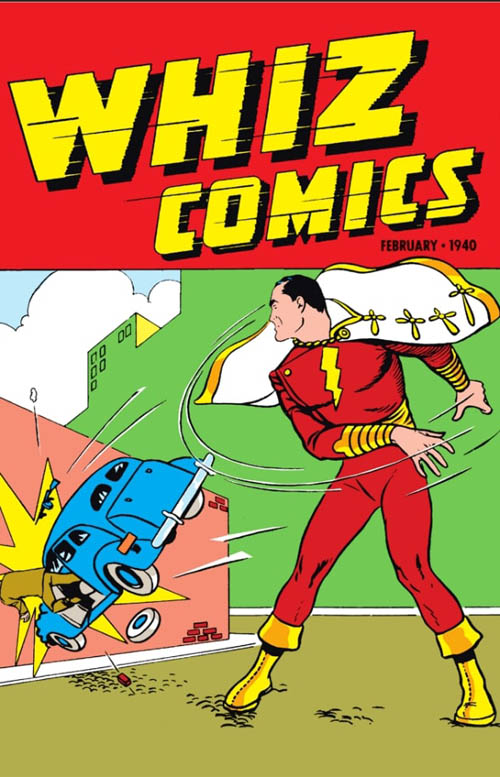
Ah, the 1940s. When nobody would find it weird if a young kid followed a stranger wearing a trench coat into the subway. At least according to this comic!
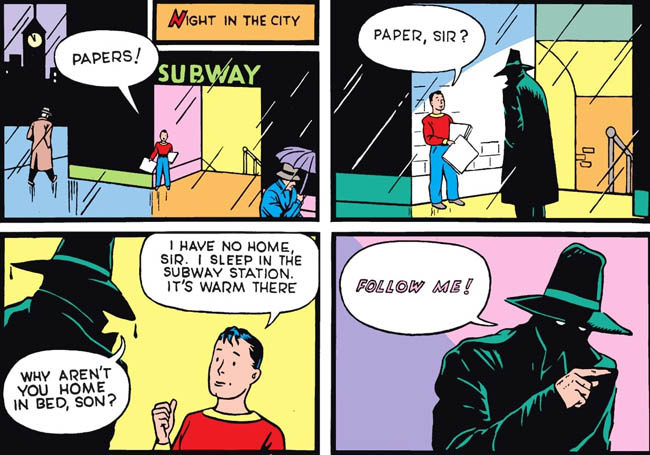
In the Sivana review, I mentioned that Captain Marvel reaching the wizard through a magic subway was so integral that it was maintained in the 2019 movie…
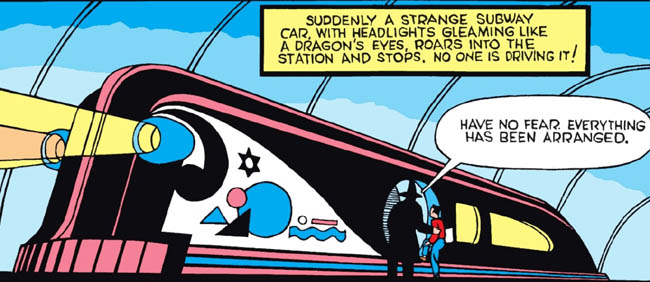
…but I undersold it. Upon further study, virtually EVERY version keeps the magic subway, even when they change other parts of the origin.
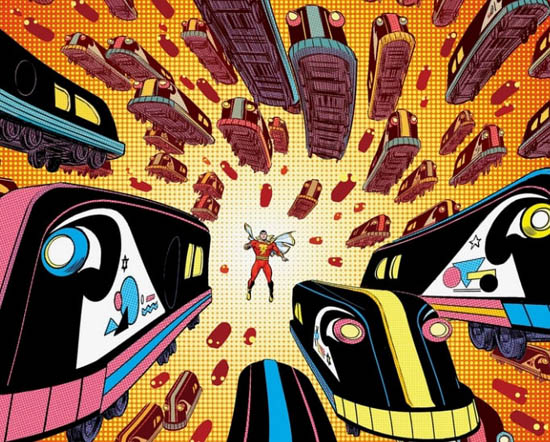
Captain Marvel’s artwork tends to be very simple, but there’s a lot of atmosphere in the magic journey.
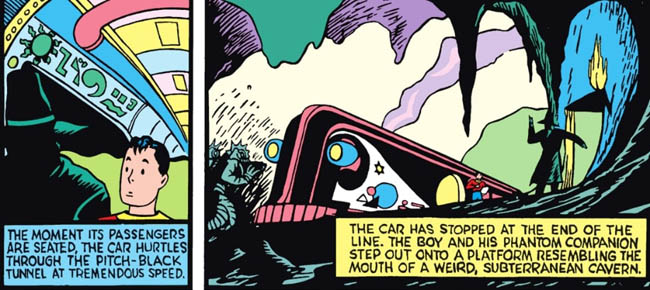
Also, Billy Batson is apparently at a loss for words the entire time.
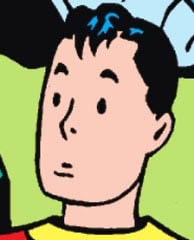
While the Seven Deadly Enemies Of Man (commonly known as the Seven Deadly Sins) are in the very first story, they’re basically a cameo. From what I could find, they wouldn’t become actual characters until 1942.
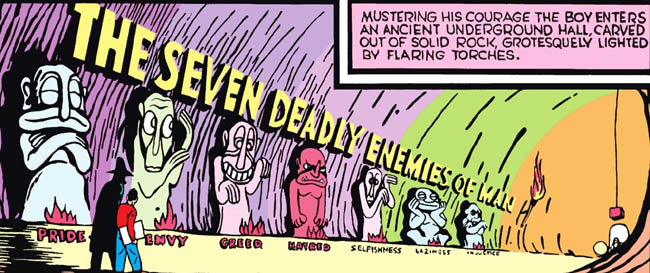
Here’s something that I always questioned about the original Shazam. That’s both the name of the wizard AND an acronym, so… did the wizard pick gods that matched his name?
That’s not really a problem for other continuities, where he was the previous campion that transformed with the magic word.
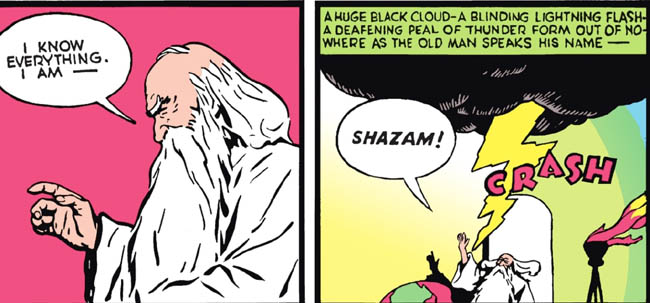
Also, that’s a pretty weird collection of names.
Solomon is the one that sticks out: he’s the only mortal and the only one who doesn’t come Greek mythology.
The others are also inconsistent, being two demigods and three actual gods (although to be fair, Hercules does become a full god during his own myth).
Besides the wisdom of Solomon and possibly the speed of Mercury, if you have the power of Zeus do you REALLY need the other powers?
And they’re not even consistently named: Hercules and Mercury are Roman names, but Zeus is Greek: the only reason these are used are the initials.
But it’s not like Bill Parker HAD to use “Shazam” as the magic word… he could’ve arranged the letters in any way or use other gods, as long as the word was somewhat pronounceable.
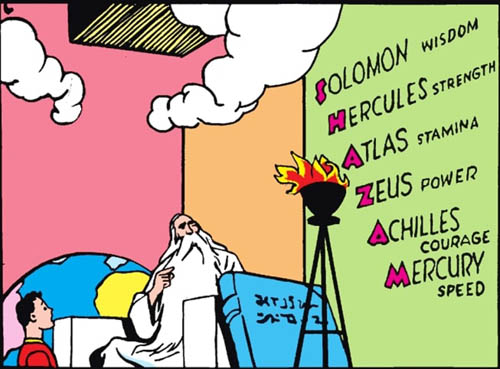
Maybe you could sell to Billy the rights to the Historama©, wizard. I bet there’s money to be made there.
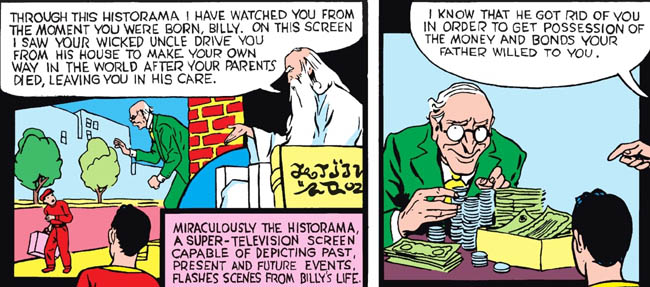
You know the rest: the magic word turns Billy Batson into Captain Marvel.
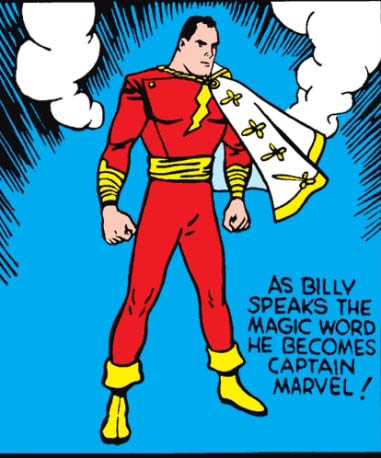
And also crushes the wizard under a block of granite, which for some reason was needed for the ritual. Considering the wizard is still around after this (mostly as a ghost), I don’t mind that most adaptations keep him alive for the Captain’s career.
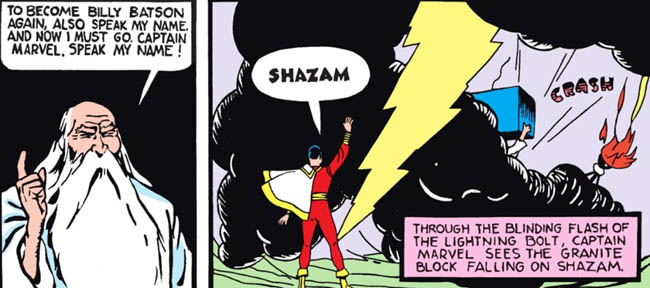
There isn’t much else to say about the rest of the story since I’ve already reviewed it.
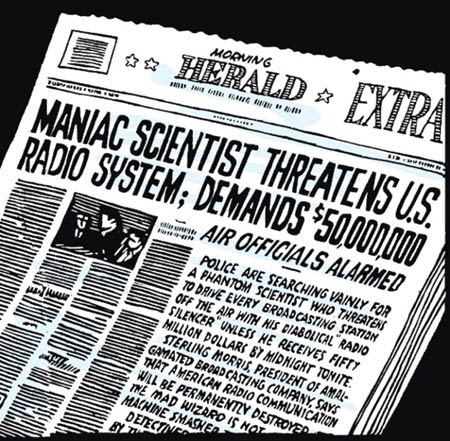
Historical significance: 10/10
What else?
Silver Age-ness: 3/10
Does it stand the test of time? 9/10
The scores are from the original review.
How close is this to the modern character? 7/10
This is a tough one, because Captain Marvel is BARELY a character in his first story. Billy is even less flashed out.
However, the beauty of the classic Captain Marvel is that it’s very simple, very efficient and very catchy. So there isn’t too much to dwell upon.
Over the years he’s become a more complex character, especially whenever there’s a chance to differentiate between the personality of Captain Marvel and Billy, which are not EXACTLY the same. Captain Marvel is not the adult version of Billy, he’s more like an idealized version of what a kid might think an adult is like.
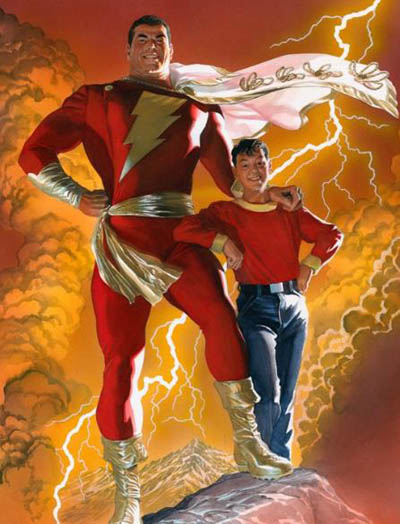
Captain Marvel wasn’t even originally supposed to be called that: Bill Parker originally wanted to name him Captain Thunder.
Also, it seems the concept originated from a completely different idea, a series focusing on a group with six heroes, each one with a single power provided by a god, and only later Parker merged them into one.
Mind you, the only source I could find about this was an article by Fred Hembeck, which I could not verify.
What IS verified, however, is the story behind the title of the series: it was originally supposed to be “Flash Comics”, but DC beat them with their own series. Then it was supposed to be “Thrill Comics”, but there was already a series called “Thrilling Comics” that was too similar. So they had to settle for Whiz Comics.
The series definitely went for a different approach when compared to the competition:
When Bill Parker and I went to work on Fawcett’s first comic book in late 1939, we both saw how poorly written and illustrated the superhero comic books were. We decided to give our reader a real comic book, drawn in comic-strip style and telling an imaginative story, based not on the hackneyed formulas of the pulp magazine, but going back to the old folk-tales and myths of classic times.
C.C.BECK
Captain Marvel was an instant hit, with Whiz Comics #2 selling over 500,000 copies AND receiving his own live action adaptation in 1941.
By comparison, Batman would have to wait until 1943 and Superman wouldn’t get his own movie serial until 1948.
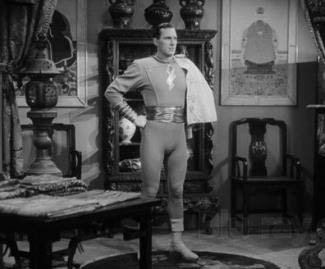
He received a second series with “Captain Marvel Adventures” already in 1941, and it was an absolute sales juggernaut.
At its peak it was a bi-weekly title with a circulation of 1.3 million copies PER ISSUE.
According to at least one source, the series sold 14 MILLION COPIES in 1944.
Is it any wonder that they started to write “largest circulation of any comic magazine” on their covers?
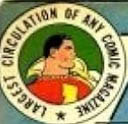
That got the attention of DC Comics (named National at the time, but I’ll refer to them as DC for clarity), who sued for copyright infringement Fawcett Comics (and the producers of the movie serial, Republic Pictures) already in 1941.
DC argued that Captain Marvel derived his powers (strength, speed, invulnerability), looks (a costume with a cape) and even his civilian identity (news reporter, because Billy was a kid but he DID have a job) directly from Superman, and presented in court an entire binder full of panels where Captain Marvel was allegedly copying Superman.
Fawced, on the other hand, provided evidence Captain Marvel using some powers BEFORE Superman (I don’t have the details but I have to imagine that flying before Superman was a huge part of that), or even arguing that characters like Popeye or Tarzan precededn comic books while doing the same stunts.
Things were pretty bright for Fawcett at the beginning: Fawcett Comics won the trial, mostly because DC had neglected to copyright several of their newspaper comic strips.
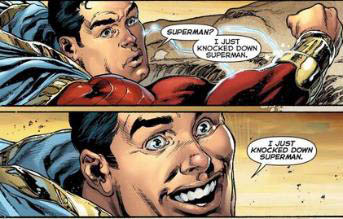
However in 1951, DC appealed the decision. A judge reversed the previous decision, judging that while Captain Marvel himself wasn’t an infringement, some of his stories DID violate Superman’s copyright.
Fawcett could have appealed all the way to the Supreme Court (which could’ve been awesome), but it would’ve been a costly legal battle and by 1951 superhero comics were no longer particularly profitable.
So Fawcett settled out of court, paying 400,000 dollars in damages (that’s 4.7 million dollars in 2023), which eventually led to Fawcett ending publications altogether.
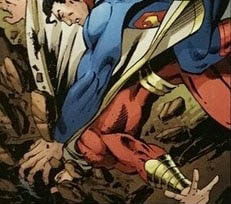
I’m simplifying a lot of things; I highly recommend reading up on this case, because it’s a fascinating story!
DC Comics eventually bought the rights to Fawcett characters, with Captain Marvel having his own series that lasted from 1973 to 1978.
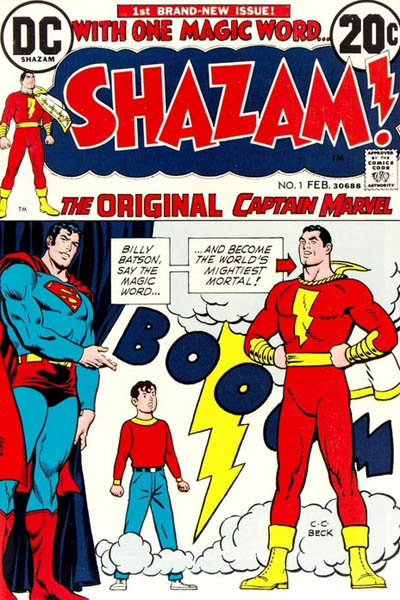
They couldn’t, however, call the series Captain Marvel. In the meantime, TWO different characters popped up with the name.
First a VERY weird character created in 1966 by Carl Burgos… yes, the same one of the original Human Torch… for the short-lived M. F. Enterprises.
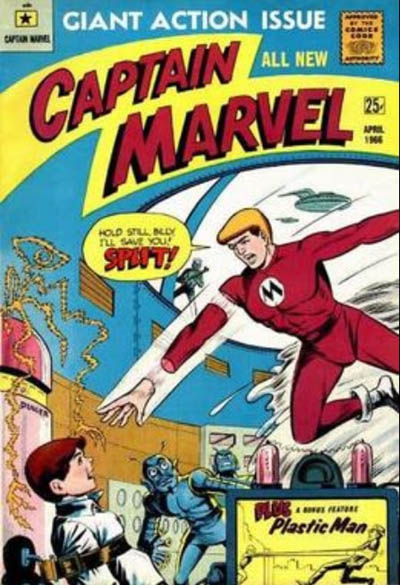
But more importantly, in 1967 Marvel Comics noticed that they could launch a series with the name, which was extremely convenient.
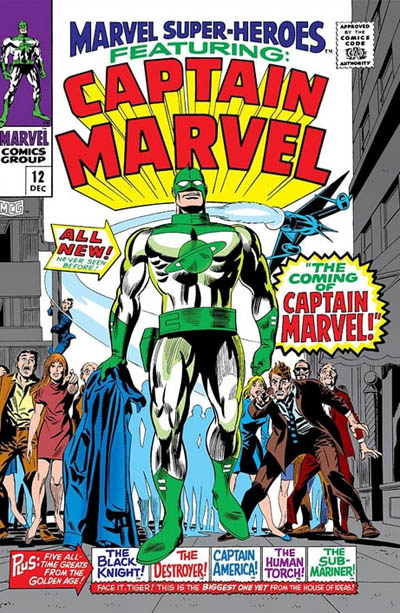
And that’s why DC Comics has NEVER been able to use Captain Marvel as the sole title of a book, because they would only advertise their competitor.
And it’s also the reason why there will ALWAYS be a Captain Marvel series at Marvel Comics: if they stopped publishing the title in SOME form, they could potentially lose the copyright.
To think that ALL this could’ve been avoided if Fawcett stuck with Captain Thunder!
In the long run, however, it can be argued that Superman beat Captain Marvel only to BECOME more Captain Marvel than he originally was.
Sure, his adventures are rarely as child-like and whimsical as the Captain’s original run, but the scope of his powers and the complexity of his mythos met and exceeded the original Golden Age.
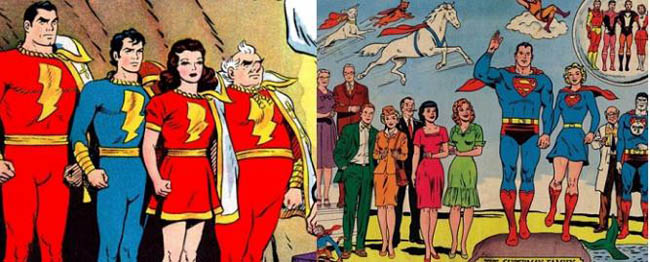
Besides, how can anyone stay mad at Captain Marvel?
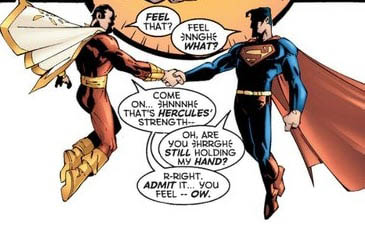

The otherwise-terrible “War of the Gods” storyline explains very nicely the odd mix of Greek and Roman deities plus Solomon combining to provide the power of Shazam (to Billy Batson, at least).